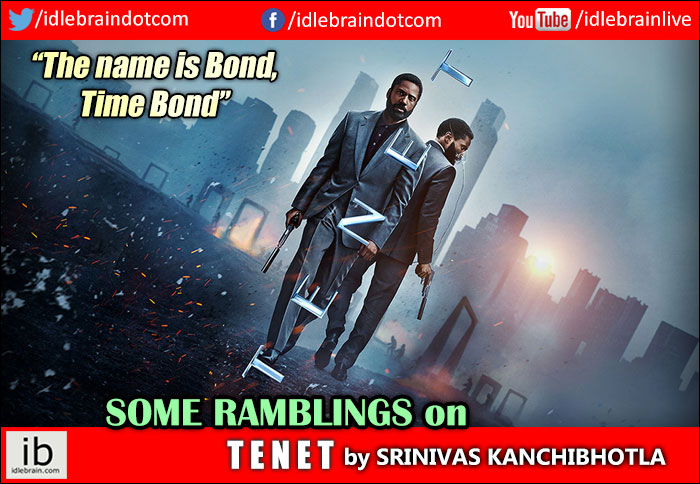
Post hoc, Ergo propter hoc goes a logical fallacy in causality, which translates to, since two events occur one after another, the first event caused the second one. The classic example being one with the crowing of the rooster and the sunrise, with the former being attributed the credit for the latter. Even though ‘cause and effect' is real, it cannot always be established on a linear time scale, like in cases involving butterfly effects, where one event occurring in some part of the world brings about either a subtle or a monumental change in some other part of the world over a protracted period. Whether he intended it for any effect or not, Lincoln's statement about Harriet Stowe's novel "Uncle Tom's Cabin" triggering in him the idea about slave emancipation can be filed under butterfly effect, meaning, some poor soul slaving away in a cotton plantation farm deep south needs to thank Stowe, whom he had never met nor even heard of, for his change in status and the subsequent change of fortunes. Fate or destiny operating in the three dimensions of cause, effect and time bring a unique perspective on the understanding of human events..... and ones that do not find a place in this model go into the paradox bin.
Nolan's movies have always been about the relativity of time and perception, how events take on a different meaning (and take off a different trajectory) on a varying time scale. 'Memento', a simple investigative thriller, if told linearly, becomes a psychological study of character about purpose, when told in reverse. 'Inception' and 'Interstellar' involve dilating and compressing time. Even the historical 'Dunkirk' doesn't escape his gaze under the time microscope. And with 'Tenet', his most audacious and ambitious of all, he closes the time loop, by inverting the traditional understanding of time travel and its associative paradoxes. In 'Interstellar', the initial assumption, that some intelligent beings in the distant future were helping humanity to jettison the dying Earth, by placing clues along the way (creating a wormhole to traverse the universe, creating a tesseract inside the blackhole), receives a jolt when Cooper eventually realizes that the "intelligent beings from the future" are they themselves on a farther timeline who reached out to their ancestors, through some wrinkle in time, to help them take the great leap off the blue planet. Effect helping the cause fulfill its destiny, instead of the usual cause resulting the effect sealing its fate. The seeds of "inversion" sown right there, when Cooper observes "They're US"! "Tenet" pushes this envelope even further, this time pitting the present against the future, with the future trying to prevent (a rogue element of the) present from total world annihilation, which erases the very existence of the future! Paradox proposes, but theoretical physics disposes!
"Tenet" is not an easily accessible movie, which, to be fair, fits right in his suit of other head scratching mind benders. His worlds are bound by his own set of rules and those rules are anything but straightforward. And the real exhausting part, the exposition (in some form or the other - realizations, rude awakenings and dawning moments), which goes on until the end of the movie. And coupled with his constant cross-cutting pattern, which keeps all the balls mid-air in his juggling act until the spectacular conclusion, the audience is almost always a couple of paces behind him trying to second guess the next move. The concepts are inventive and plotting, intricate, and those are definitely by design, leaving a long lasting after-taste well after the proceedings are done. Continuing on with his fascination of quantum physics, he sets his sights on a variation of time travel in "Tenet", where the time travelers experience the world in reverse while the world around moves forward. As if that's isn't twisted enough, the point of view remains of the time traveler to have him moving forward (though he is moving back in time), while the world around appears to be reversing and retracing. And that sets up for some amazing stunts ever put on the screen - two actors fighting in reverse. This is not just the standard reversing of the playback (the neat trick usually seen in Indian songs), these are actual stunts practiced and performed in reverse. "Tenet" feels like the final act of all that Nolan has been building up till now with his spatial and quantum features - in design and execution (the zero gravity stunt scene in the hotel corridor in "Inception" serving as the blueprint to the "Tenet" stunts).
This movie is the closest that Nolan will ever get to making a James Bond movie, not only in terms of the spectacular set pieces, the globe-trotting jet-setting locations, but, in what is a radical departure from his usual sterile, clinical world, humor (however dry it may be), emotion, over the top megalomaniacal villain and his grandiose plans of ending the world, literally. What is not Bond-ish, however, is his refusal to dumb down the "how" of the annihilation, and in his usual stride, forges ahead dismantling old structures and setting up new ones (a la Bernard Shaw, "I dream of things that never were and ask why not"). The final stunt, with two teams - one moving forward in time and one backward - charging into a war like scenario in a pincer movement trying to stop a global event, captures the entire Nolan oeuvre perfectly, in spirit and letter, right from the audacity of the idea to the grandiosity of the execution. It calls for a double take to figure out what each perfectly choreographed move means and how it all finally adds up. And like his other standard issue mind-bending fare, this too, quite surely, is by design.
checkout http://kanchib.blogspot.com for Srinivas's Blog.
